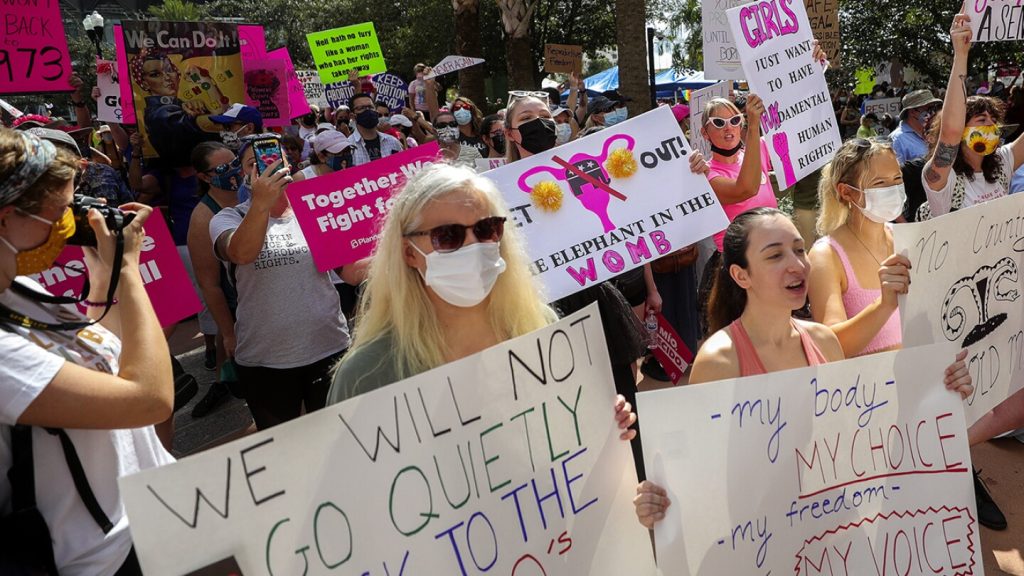The Florida Supreme Court has made significant rulings regarding abortion laws in the state, allowing for a ban on most abortions after 15 weeks of pregnancy and potentially moving towards a ban after six weeks. These decisions come amidst a broader political landscape that could impact the upcoming elections, with the possibility of driving abortion-rights supporters to the polls. The court’s decisions reflect the influence of Republican Governor Ron DeSantis, who has appointed a majority of the justices on the court.
Planned Parenthood, the ACLU, and other organizations have challenged the state’s abortion laws, citing the unique privacy clause in the Florida Constitution that has historically protected a woman’s right to choose. However, the court ultimately ruled in favor of the state, arguing that the privacy clause, when adopted by voters in 1980, was not intended to cover abortion rights. This decision has sparked concern among abortion rights advocates, who fear that access to care may become increasingly limited for Florida residents.
Many opponents of the court’s decision see it as a threat to personal freedoms and healthcare access in the state. Democratic representatives like Anna Eskamani have expressed disappointment in the ruling, noting the potential impact on individuals seeking abortion care. Advocacy groups are preparing to adjust their strategies to ensure access to care, including funding travel expenses for women who may need to seek abortions out of state due to restrictions in Florida.
In addition to upholding the ban on most abortions after 15 weeks, the court has allowed a ballot measure to proceed in November that would enshrine abortion rights in the state constitution. This proposed amendment aims to protect the right to abortion before viability or to protect the patient’s health, as determined by their healthcare provider. The decision to include this measure on the ballot reflects the ongoing debate surrounding abortion rights and access in Florida.
The political implications of these rulings are significant, with abortion becoming a central issue in the upcoming elections. Supporters of abortion rights may be motivated to vote in response to the court’s decisions, potentially impacting the outcomes of the presidential race and congressional contests. As other states enact similar restrictions on abortion, Florida’s policies are being closely watched as a reflection of the broader landscape of reproductive rights in the United States.
Overall, the Florida Supreme Court’s decisions on abortion laws highlight the ongoing debate over reproductive rights and access to care in the state. The clash between state lawmakers, advocacy groups, and the court underscores the complex and contentious nature of the issue, with implications for individuals seeking abortion care and the broader political landscape in Florida. The upcoming elections will likely see increased focus on abortion rights, as voters grapple with the implications of the court’s rulings on this critical issue.















